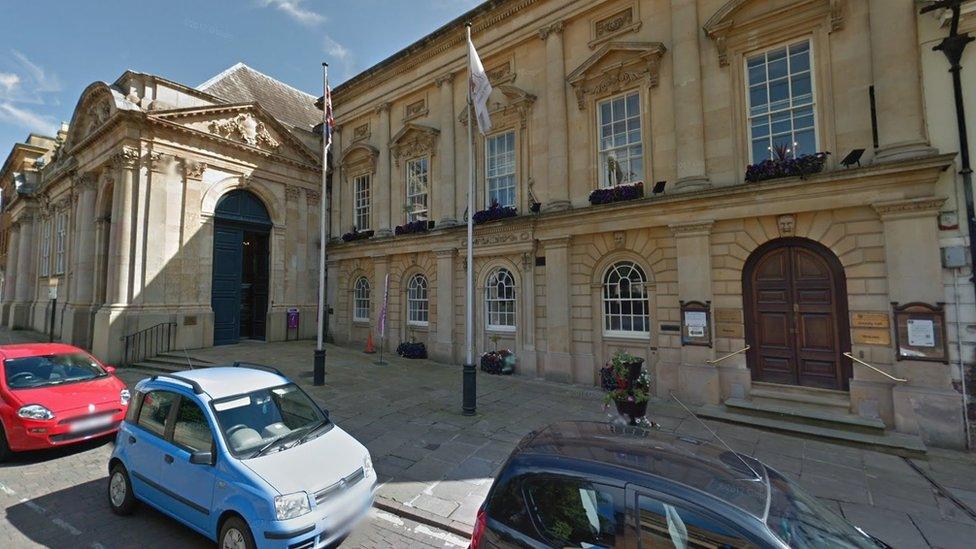Elections 2021 in Northamptonshire: Votes to replace country's 'worst-run' council
- Published
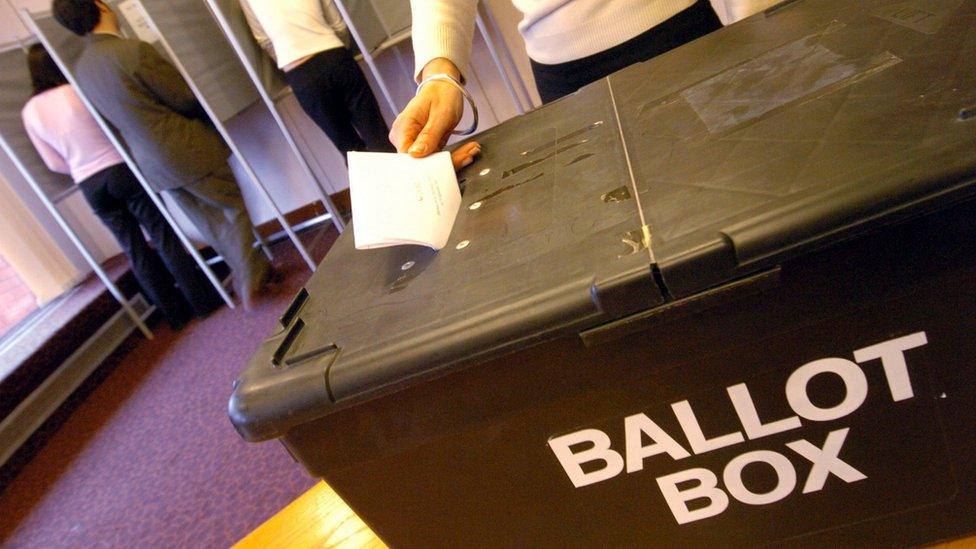
Two spending bans, the imposition of government commissioners and a failing children's services department - the recent turbulent history of Northamptonshire County Council has seen the authority scrapped, with the 6 May elections ushering in a whole new system of local government. The BBC has been looking into how it will work, and how we got here.

What's happening in May?
This year's elections will see a new system of local government in Northamptonshire.
Residents will be asked to elect councillors for two new unitary authorities - West Northamptonshire Council and North Northamptonshire Council.
These authorities only started life at the start of April 2021, replacing the scrapped Northamptonshire County Council.
District and borough authorities in Northampton, South Northamptonshire, Daventry, Corby, East Northamptonshire, Kettering and Wellingborough were also replaced.
The new West Northants council will cover Daventry, Northampton, and South Northamptonshire, while the North authority takes on the area previously covered by the other four district and boroughs.
Parish and town council elections will also take place, including for the new Northampton Town Council, which will be the largest authority of its type in the country.
Why? In short, due to the financial failure of the old county council - but there's a longer story.

How did we get here?
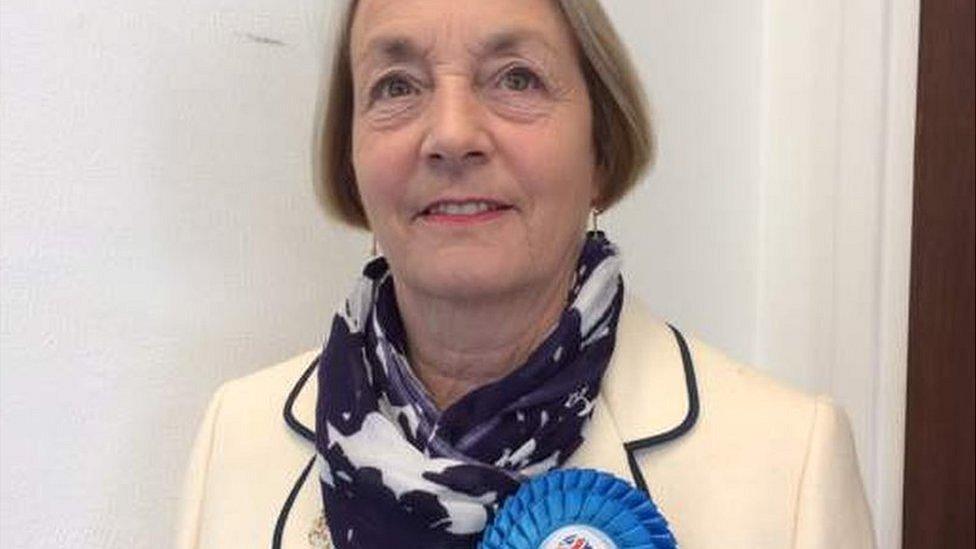
Heather Smith had argued the county council received "significantly less" in government funds than other authorities
The fault lines in Northamptonshire County Council started to appear - publicly at least - towards the end of 2017.
In September that year, the then council leader Heather Smith made an appeal to government for fairer funding.
She insisted the government's funding formula did not take into account the levels of demand for services across the county or population data.
By the end of 2017, the council's Conservative administration had revealed it needed to make savings of £34.3m and by January 2018 it had announced it was considering selling its £53m One Angel Square headquarters.
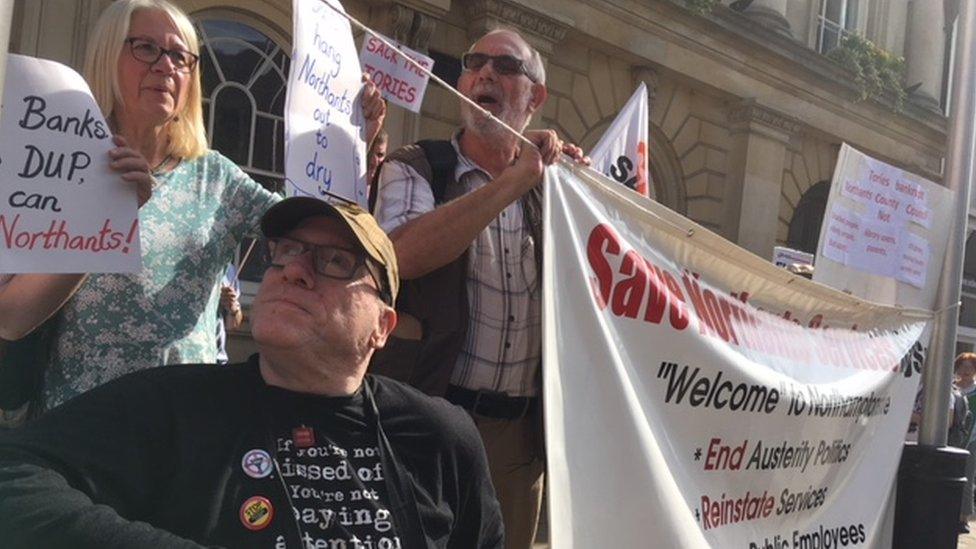
Residents protested against proposed county council cuts in 2018

Children protested outside Desborough Library during a consultation on possible library closures
Things quickly began to spiral out of control.
Sajid Javid, then the newly-appointed Secretary of State for Housing Communities and Local Government, ordered an investigation into the council's finances.
Just a month later, the authority was banned from any new spending, except on services for vulnerable people.
Conservative MP for Kettering Philip Hollobone called it the "worst-run" authority in the country.
It was the first time such a ban had been issued in more than 20 years.
Incredibly by July 2018 a second such ban had been imposed.

Tony McArdle (left) and Brian Roberts served as commissioners to put Northamptonshire County Council back on a stable financial footing before it was scrapped
In-between these two notices being issued, the investigation started by Mr Javid had reached a conclusion.
Led by Max Caller, who more recently looked into failings at Liverpool City Council, it concluded the county council should be scrapped saying it had not been "particularly badly treated by the funding formula".
Instead, he blamed the authority for its own demise, saying "living within budget constraints is not part of the culture" in Northamptonshire.
Mr Caller made two major recommendations - the appointment of government commissioners to stabilise the authority and a major overhaul of the county's political system.

What is a unitary authority?
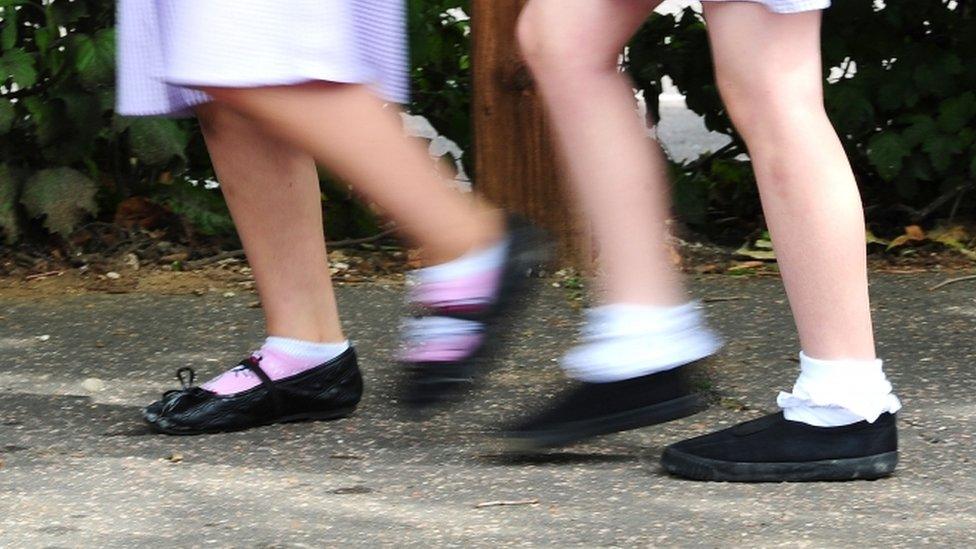
All services in West and North Northamptonshire will now fall under the control of the relevant unitary authorities, with the exception of children's services which will come under an independent trust
The introduction of the two new unitary councils not only spelt the end for the county council, but for Northamptonshire's seven borough and district councils.
The county council had been in charge of services such as education, community health, social care, waste disposal/recycling and libraries, while the borough and districts looked after services including waste collection and planning applications.
Under the unitary authority model all council services will be under one roof.
Or at least nearly all. The county's failing children's services department has already been moved under the authority of a stand-alone trust.
That body came into being in November 2020 and will remain in place under the unitary system.
May's local elections will see 93 councillors elected in West Northamptonshire, and 78 to represent North Northamptonshire.

Why the long wait for elections?
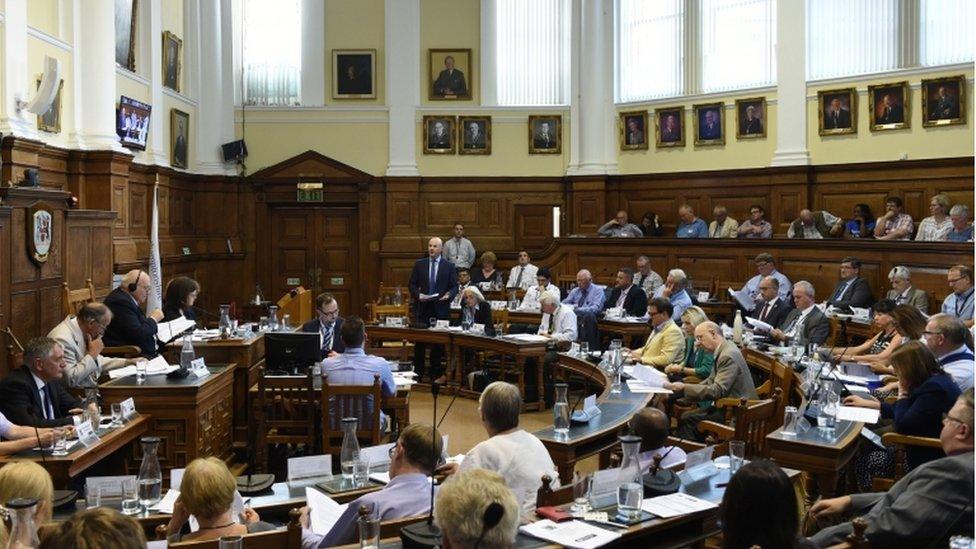
Northamptonshire County Council was subject to two spending bans in 2018
Elections in Northamptonshire are long overdue.
That is because elections scheduled across the county were cancelled in 2019 due to cost implications of electing councillors who may only have been in place for a year.
They were then shelved for a further 12 months following the coronavirus outbreak last year.
Two shadow authorities for the West and North, composed of all existing borough, district and county councillors in each area, came into being in April 2020 in preparation for the changeover.
These will also cease to exist on 1 April when the new authorities come into place.
As we are in an election period, the two new unitary authorities come into being with no elected councillors at present.
All of which makes May's elections in Northamptonshire somewhat different from the norm.

Find BBC News: East of England on Facebook, external, Instagram, external and Twitter, external. If you have a story suggestion email eastofenglandnews@bbc.co.uk, external
- Published21 January 2020
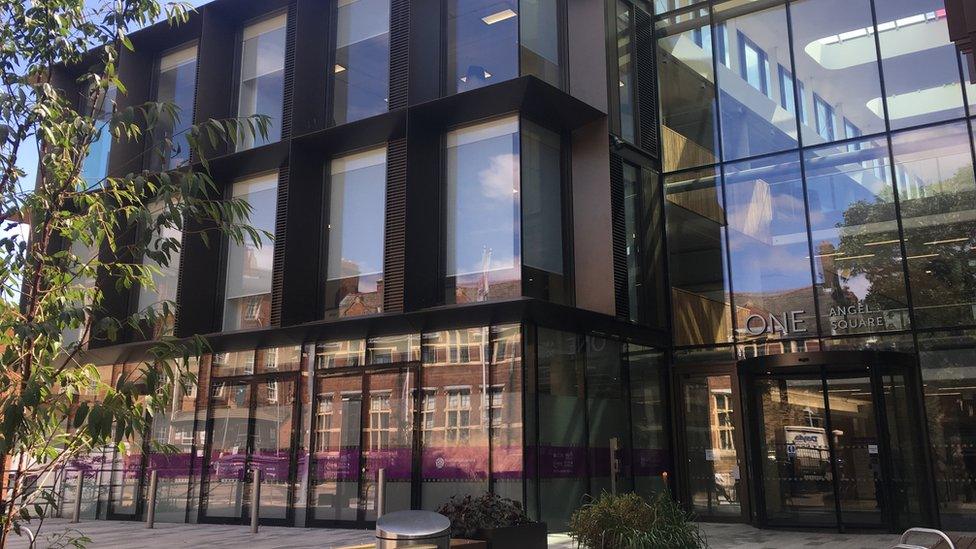
- Published4 December 2020

- Published14 May 2019
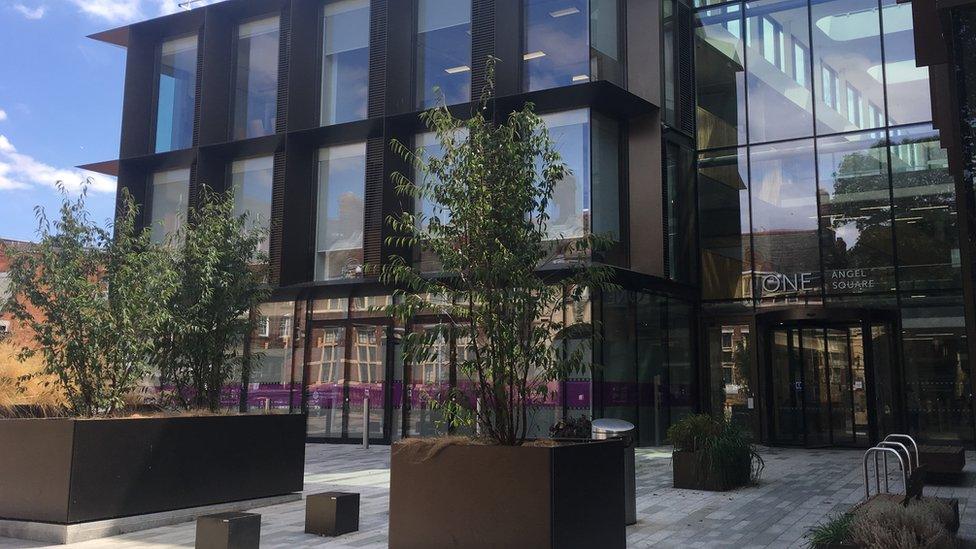
- Published9 August 2018
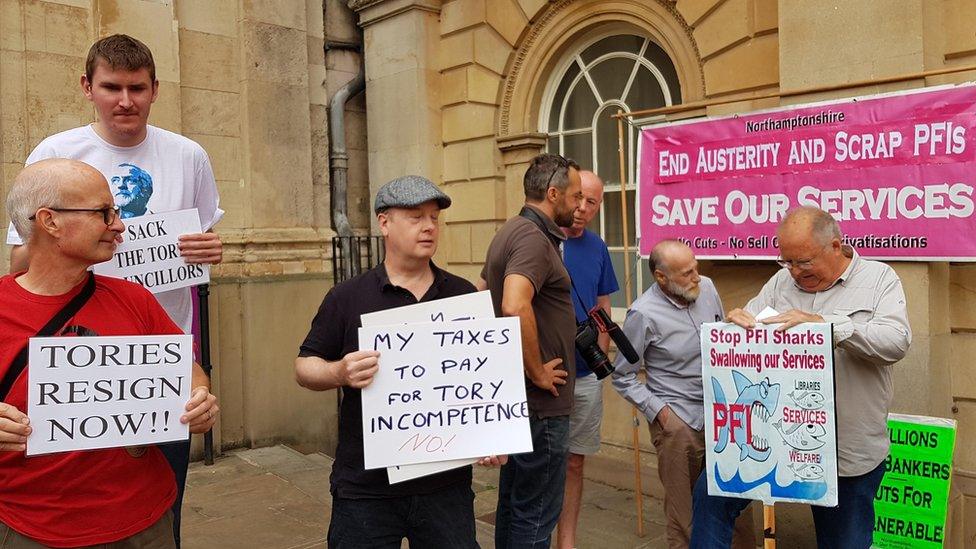
- Published24 July 2018
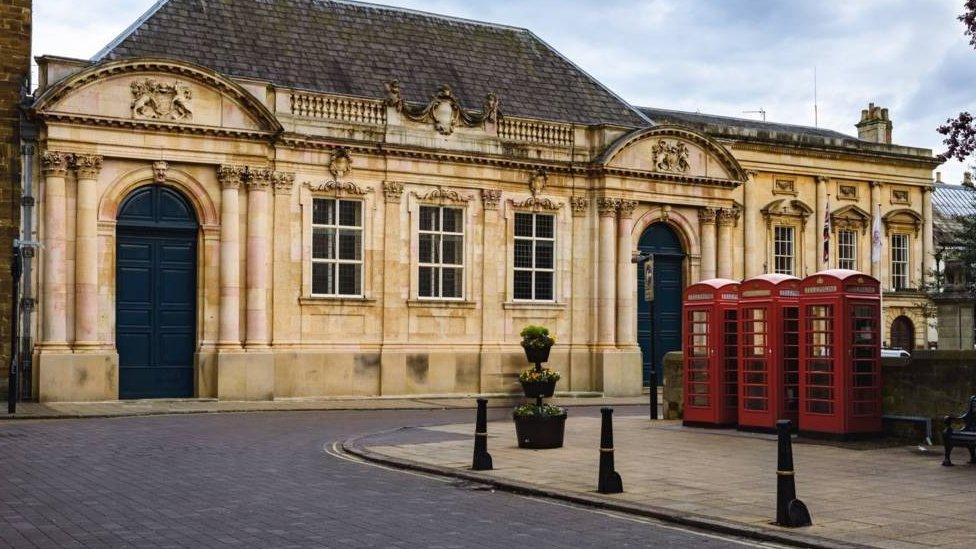
- Published10 May 2018
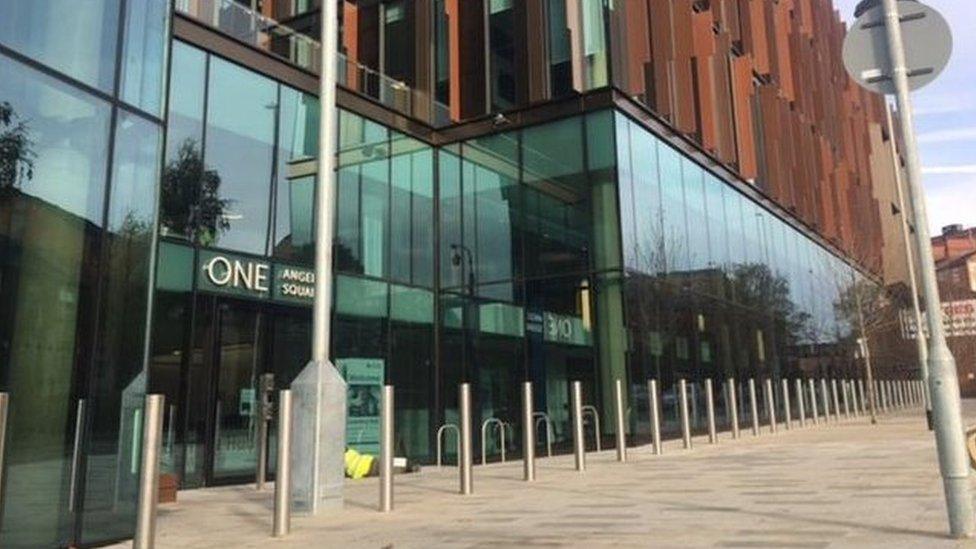
- Published15 March 2018
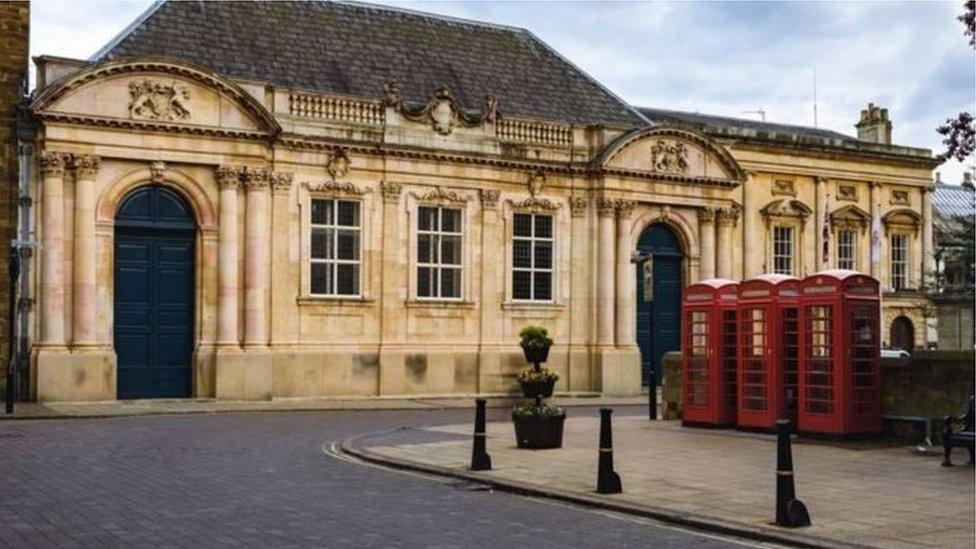
- Published2 February 2018

- Published13 September 2017
